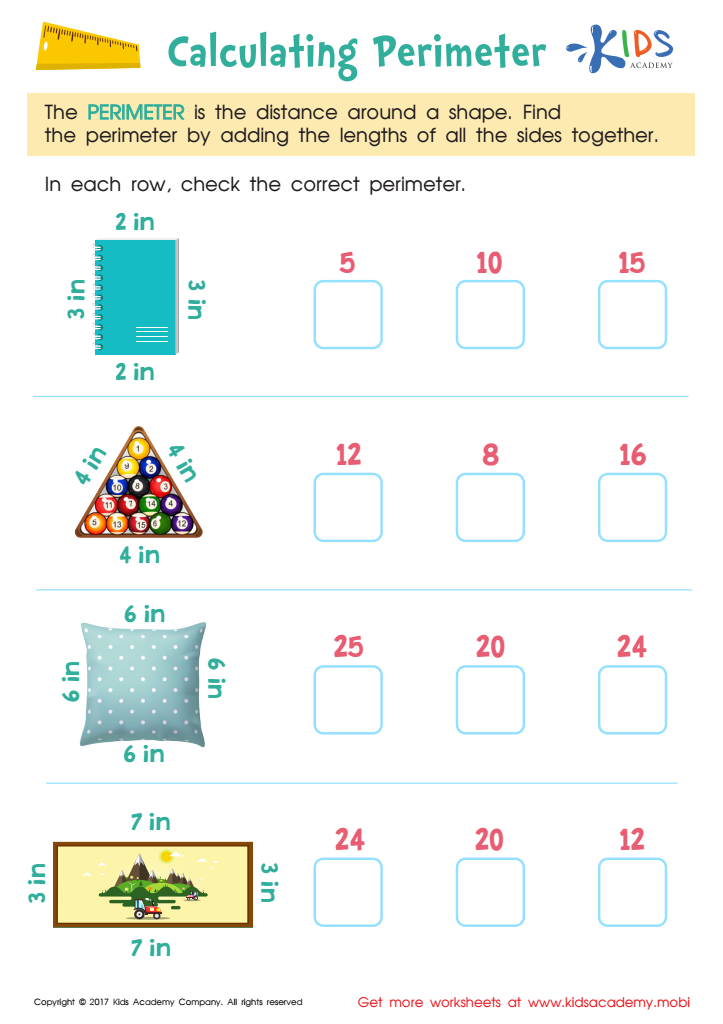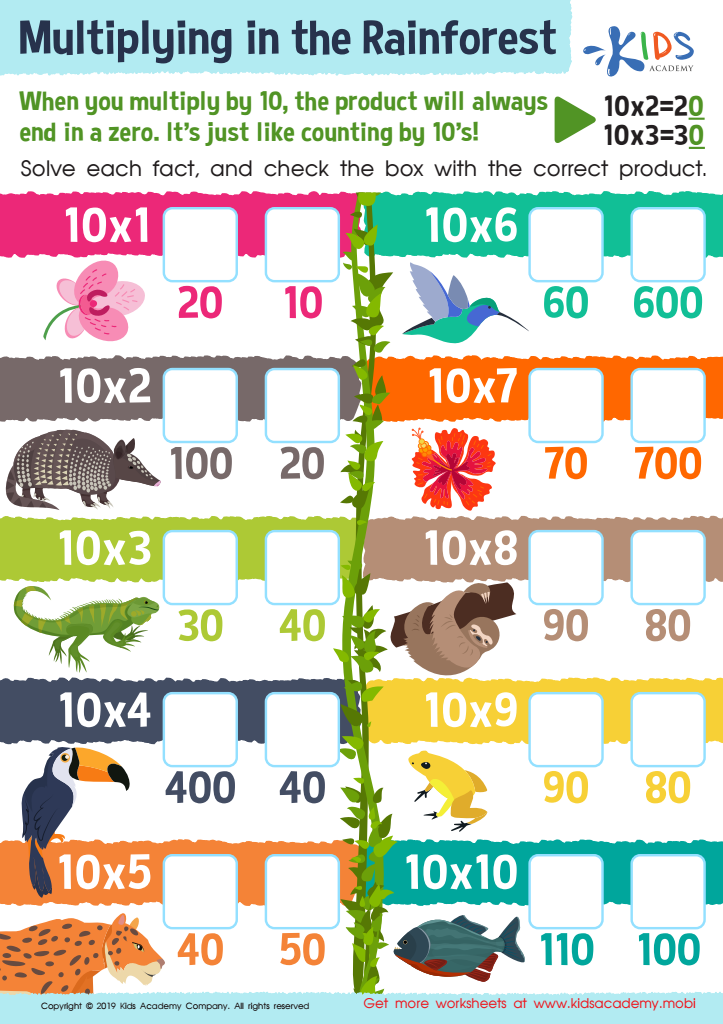Promotes problem-solving Math Worksheets for Ages 6-8
3 filtered results
-
From - To
Discover our engaging problem-solving math worksheets tailored for children aged 6-8! Designed to enhance critical thinking and foster a love for math, these worksheets offer stimulating challenges that encourage learners to apply their knowledge in practical scenarios. Each activity promotes logical reasoning and helps kids develop essential skills to tackle real-world problems. With colorful visuals and diverse problems, our worksheets create a fun learning environment where young students can thrive. Perfect for classrooms or home study, our resources not only support math mastery but also inspire confidence in young learners. Unlock your child's potential today with our problem-solving math materials!


Let's Share Worksheet


Calculating Perimeter Worksheet


Multiplying in the Rainforest Worksheet
Promoting problem-solving math for ages 6-8 is crucial for several reasons. At this developmental stage, children are forming foundational mathematical skills that will impact their future learning experiences. Problem-solving helps them understand concepts beyond rote memorization, encouraging critical thinking and analytical skills. By engaging in math challenges, children learn to approach problems systematically, breaking them down into manageable parts—a skill applicable not only in math but across all subjects and life situations.
Moreover, fostering a love for math at an early age can shape children's attitudes toward the subject, countering common anxieties associated with math later on. When parents and teachers emphasize problem-solving, they create an encouraging environment that values exploration and persistence, which helps children build confidence in their abilities.
In addition, these skills pave the way for more advanced mathematical concepts and real-world applications as education progresses. Teachers and parents should recognize that supporting problem-solving does not just enhance mathematical skills, but also cultivates resilience and a growth mindset, qualities that are essential for future academic and personal success. Investing time in problem-solving activities can lead to holistic developmental benefits that extend beyond mathematics itself.

 Assign to My Students
Assign to My Students
















